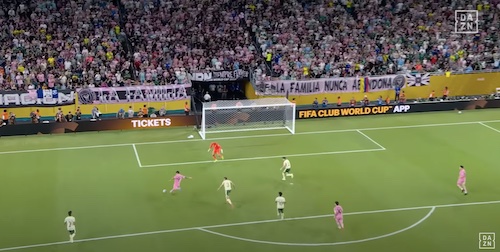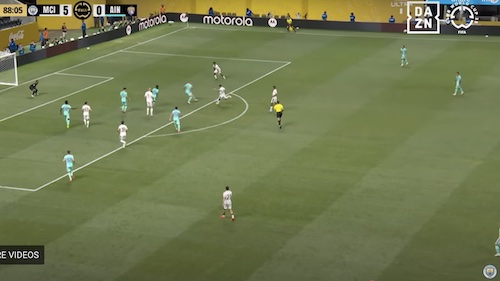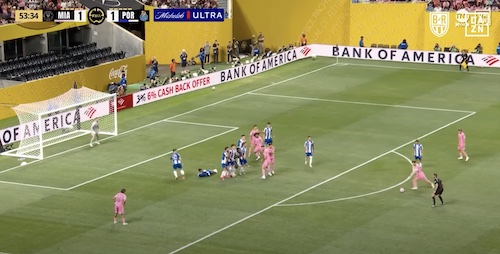By Jeff Kassouf
In recent years, the most pressing topics surrounding the future of Major League Soccer have all centered on league growth, most publicly through the building of new stadiums and expansion teams. With the current economic situation in the United States and the league showing signs of growth and stability, herds of investors have been noticing the benefits of getting involved in Major League Soccer.
It is arguably – and with the recent, temporary collapse of the Arena Football League, perhaps inarguably – the most up-and-coming league in the country. The addition of Seattle Sounders FC in 2009 will be the league’s fifteenth team, with Philadelphia entering in 2010. The time has never been better to get involved in Major League Soccer, if the investing party can handle it.
MLS plans to add two more teams in 2011 in this wave of an expansion era before abruptly freezing the process to let the league grow with the teams it has. Therefore several cities are vying for those final two slots, including Portland, Vancouver, St. Louis, and, er – Miami.
No, the Miami Fusion is not looking to make a comeback after moderate success on the field and failure off of it, but FC Barcelona is actually looking to place a team in Miami that represents something of a sister club to the Spanish giants.
The rumors have existed for some time now, but as the news continues to show more advanced talks, it becomes even more worrisome for Major League Soccer fans. The last thing that Major League Soccer needs is another version of Chivas USA: the team that fails miserably in attracting fans because it thinks that slapping a big name on a franchise will draw people.
Though Barcelona holds a lot more clout in its name than Chivas does, allowing a complete mirror image version of the team from Spain into Major League Soccer simply does not make sense.
First, the most basic element is the name. Is this would-be-team to be called Barcelona USA? Such a name would easily qualify as the stupidest, most nonsensical name in all of sports, worse than any minor league baseball team’s name, which include references to biscuits, steaks, and aliens. Yes, it would be that bad.
Unlike Chivas, which is a nickname and is not geocentric, Barcelona is actually a place in Spain. There is no such thing as Barcelona, Florida.
More importantly, Major League Soccer has failed in Miami once before. It also failed in Tampa, just a few hours across the state. Miami FC, the current USL-1 side, has been at or near the bottom of the league in attendance in its three years of existence.
So, it is looking to be the third failed Florida soccer experiment in about a decade, the second in Miami. What exactly do MLS officials think is going to be different this time around? Chivas USA is a shining example of failure to execute a very similar plan to the one being talked about.
Sure, the new stadium at Florida International University is encouraging, but that won’t make people come out to the games, and neither will the Barcelona name if there is no product on the field.
Perhaps the most disturbing thing about the news surrounding Miami is a comment by Marcelo Claure, a partner of FC Barcelona in bringing the potential team to Miami. Apparently, he and the other executives are insistent that the team begin play in 2010 or not at all, refusing to wait until 2011 (according to Jeff Rusnak of the Sun-Sentinel).
Claure even hinted at making the Philadelphia franchise, which has lined up thousands of season tickets, an enthusiastic supporters group, and its own stadium, wait an extra year to enter the league. “That’s an option,” he said in the interview with Rusnak. “Or Philly and Miami might come in at the same time.
Exactly why is Barcelona so anxious to enter the league in 2010? And why should Philadelphia and its already faithful fans have to suffer?
If Don Garber and the executives at Major League Soccer have any type of pride in the league, they will not allow themselves to bend over backwards for FC Barcelona. Make Miami prove itself just as Seattle and Philadelphia have with their overwhelming responses.
Major League Soccer is just beginning to become a league with its own identity. It is time to move into a more progressive, independent stage of operations where teams are not puppets branded by a parent club. Certainly, Barcelona could offer a lot to the league. But to allow the Miami club to become another offshoot of the Spanish team and bully the league into conforming to its agenda would be a huge mistake for Major League Soccer.
Jeff Kassouf is a staff writer for The New Paltz Times and a freelance writer who covers soccer, and can be reached at: jeffkassouf@yahoo.com















